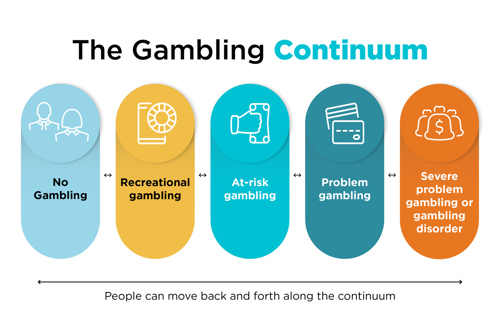Other risk factors and causes
Additional risk factors for problem gambling include:
Criminal justice involvement. It’s well documented that people who misuse substances and have drug-related convictions make up a large portion of the U.S. prison and jail population. Some researchers estimate that 65% of incarcerated people have misused substances or have an SUD. But justice involvement is also linked with gambling: Studies show at least one-third of incarcerated people gamble. Most people who have gambling disorder and are in prison or jail report that their incarceration was related to a gambling offense.
Early age of onset. People exposed to gambling as youths or young adults may be more at risk. Over time, this could have a disproportionate effect on certain minority groups; one study found that 10% of Black, Native American, and Hispanic youths gambled on a daily basis, compared with just 4% of white and 5% of Asian youths.
Early big wins. People new to betting who have an early big win are more likely to develop later problems with gambling.
Frequent gambling and certain types of games. People who gamble frequently and who gamble on high-risk games of chance (e.g., betting on sports while they’re being played, playing bingo, and buying scratch cards) may be more at risk.
Male gender. Young men who are single and live alone or who have been married for less than five years are more likely to develop problem gambling. Males have a higher rate of problem gambling (6.8%) than females (2.5%), according to a 2015 study. However, other evidence suggests that problem gambling among females is on the rise, along with an associated risk of developing an SUD.
History of mental illness. As many as 96% of people with gambling disorder meet the criteria for another psychiatric disorder, including mood, anxiety, and substance use disorders.
Influence of family, friends, and media. Promotions of gambling by friends, family members, and the media, including in advertisements, contribute to the development of problem gambling.
Certain personality traits. People who are competitive, are restless, or are easily bored may also develop problems with gambling.
Lower socioeconomic status. Reviews of studies more consistently show higher rates of problem gambling among people with lower levels of education, employment, and financial stability.
Other populations who may develop a gambling problem include casino workers and people diagnosed with Parkinson’s disease.




